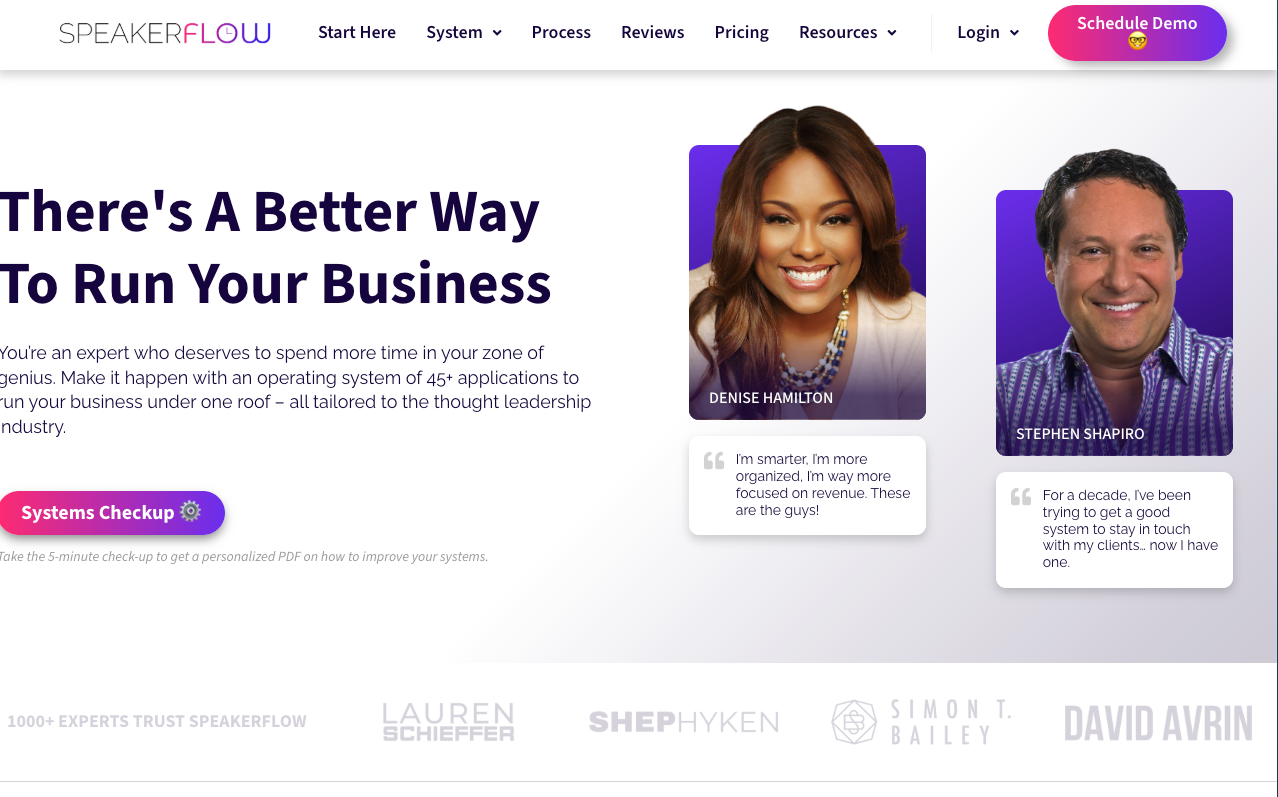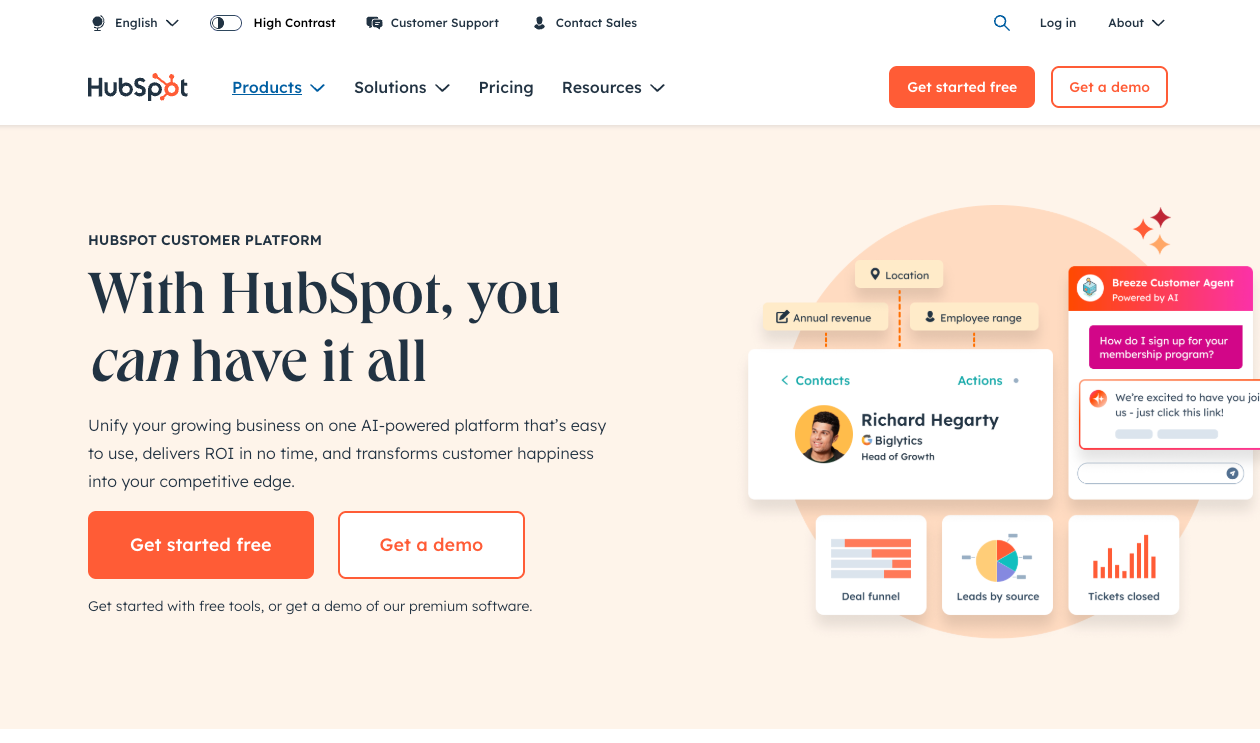If the best CRM is the one you actually use, this begs a new question…
Which CRMs are you actually using?
That’s what we recently asked our SpeakingGigs.pro subscribers with a little email survey. (Thanks again to all who responded! Your feedback was super helpful!)
Among the group that replied, there was no dominant player. In fact, the top system only had a 17% market share. It seems us speakers are scattered across many different systems.
This shows that we’re all struggling to find the right fit.
Today, we’re going to do a deeper dive on the top five systems and talk about some pros and cons you may not have considered. Hopefully this will help you move closer to the CRM that is ultimately right for you… the one you’ll actually USE!
(As in, more than once before rage-quitting and going back to sticky notes.)
SpeakerFlow: Built for Speakers, But Not for Everyone

Within our 24 respondents, 4 of you were using SpeakerFlow with one additional person saying they planned to switch to it in the coming month.
This is an open source system called Zoho which was customized by the company SpeakerFlow to work for speakers. Basically, it’s a CRM tailored specifically for speakers.
Sounds perfect, right?
Well, maybe not or else we’d all be using it.
Basically, when you sign up for SpeakerFlow, you are hiring them to help get you up and running so you can manage your speaking business. The system is customized for you.
Here are some comments from your peers on why they like this CRM:
- “It’s tailored specifically for speakers.”
- “It’s a comprehensive speaker-focused CRM solution.”
- “It’s the only CRM with speaker specific modules. They have event tracking, testimonials, travel. They even have things like bureau commission tracking.”
Honestly, SpeakerFlow looks great. But if you’re a newer speaker, it could feel expensive or overly complex. I used the system Zoho for a while, but I couldn’t stand the interface. There’s so much stuff to fill out—it felt like someone handed me a cockpit and said, ‘Good luck flying!’
In general, I know that a lot of speakers find it to be “too much” overall. But it does work (obviously) for established speakers because they can have everything in one place.
Remember, the best CRM is the one you actually use. So, if this is the system that gets you to log data consistently, then it’s right for you.
I should note that one of the four people currently using SpeakerFlow is planning to make a switch in the near future. They are working on their own system because they don’t like exactly how it works.
HubSpot: Easy to Start, Hard to Leave

Number two on the list is HubSpot. Now, this is kind of silly, because the rest of the CRMs we discuss today are all tied in their number of users.
However, I do know from conversations with peers that HubSpot is very common. I have a bunch of friends that didn’t respond to the survey who use this CRM and it’s very popular.
It comes with both a free and premium version you can upgrade to with paid tiers. However, HubSpot’s premium versions can get very expensive, very fast.
I think speakers choose it because it’s an industry standard that works with a lot of things. For new speakers, the free version is very attractive because it gives you a way to start and get sucked into their system… then you’re stuck with it.
It’s like getting a free puppy. It’s adorable at first… until you realize it eats $300 a month and chews through your inbox.
HubSpot has a lot of strong marketing automation features, which can be great if that’s what you want to spend your time working on. It has a great interface too, especially compared to a lot of the other CRM tools.
Just keep in mind, the workarounds people find themselves struggling with are things like event data – close dates and actual dates. You have to find workarounds for travel information and it doesn’t have all the functionality you’ll need as a speaker.
(It’s not built for speakers, remember?)
There is referral tracking, but it’s terrible. You’ve got to make some customization to make it work for you.
Some people I’ve spoken to use “deals” as events and that seems to work for them. You do lose a lot of data visibility there. But there are custom fields you can create for everything and lots of automations if you’re going to integrate with your calendar for events.
So, yes. HubSpot works for a lot of speakers who are running their own business.
I should note that the free version of HubSpot does have its limits, but it’s worth a try if you’re curious. Just remember you’re kind of getting sucked in and then the premium version is very expensive and can be hard to manage.
Personally, I’ve had some rough experiences with HubSpot’s customer service—but that may have just been a one-off.





